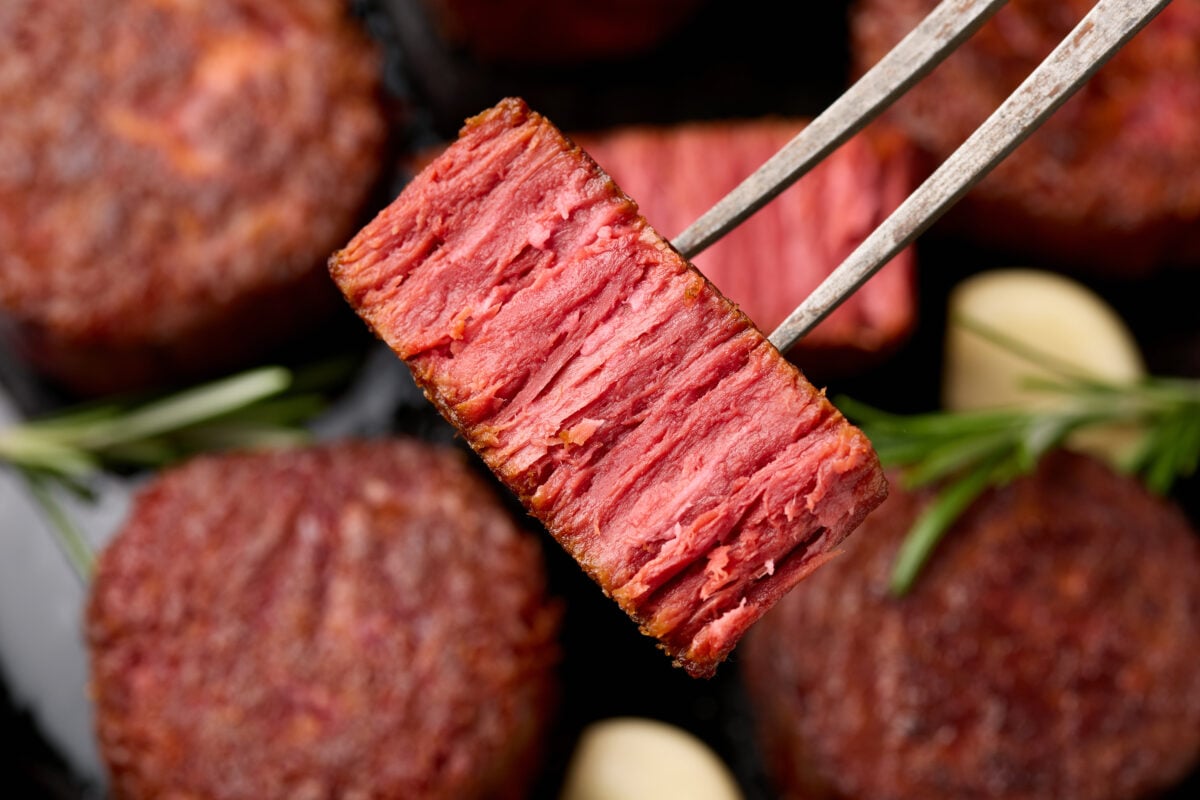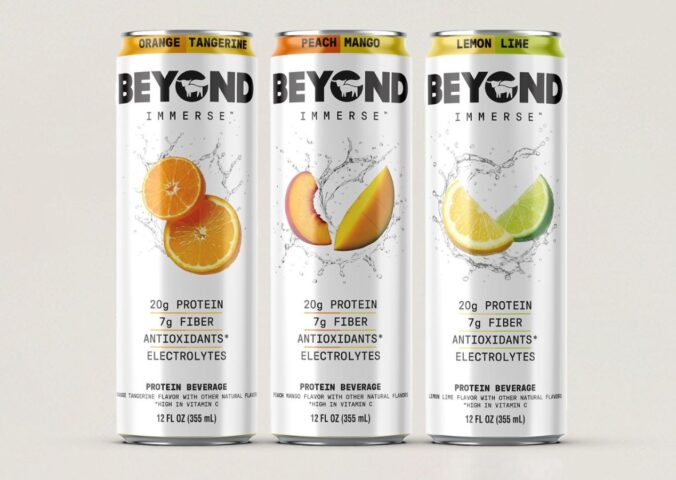Animal advocacy group Viva! has launched a guide to alternative proteins that breaks down common misconceptions and provides information about the nutritional density and history of “fake meat.”
Read more: New ‘Ultra-Processed’ Guide Answers All Your Questions On UPFs
In the guide, titled Fake News About Fake Meat, the vegan charity highlights the many benefits of alternative proteins, the risks associated with animal-derived meat, and information about ultra-processed foods (UPFs).
The meat industry has been consistently critical of meat and dairy alternatives for being overly processed, but a range of recent reports, studies, and analyses indicate that plant-based alternatives are generally better – for human health, the environment, and animals.
Viva!’s guide notes that common animal foods such as bacon, ham, sausages, hot dogs, and salami can also be considered UPFs. Furthermore, these products are listed as Group 1 carcinogens by the World Health Organization (WHO) and are proven to cause cancer.
“There are basic scientific facts that critics of mock meat ignore in their quest to keep you eating animal meat,” says the new guide. “Even low levels of consumption of meat are linked to obesity, diabetes, heart disease and cancer – the UK’s biggest killers.”
Read more: ‘What Food History Tells Us About Living Longer’
Viva!’s ‘mission to make veganism accessible to all’

Viva!’s new guide also includes a nutritional breakdown of some common plant-based and animal-based products. While the nutrient density of meat alternatives is variable, some common products – such as Linda McCartney Quarter Pounders – are higher in protein than their traditional competitors. Others have similar protein but less salt, fat, and calories.
In November, Viva! introduced a comprehensive range of sports nutrition resources along with a high-protein meal plan, produced in collaboration with Vegan Strong PlantBuilt. Faye Lewis, Viva!’s head of communications, described the partnership as perfectly aligned with the charity’s “mission to make veganism accessible to all.”
Read more: Scientists Discover ‘Critical Link’ Between Red Meat And Colorectal Cancer Risk






